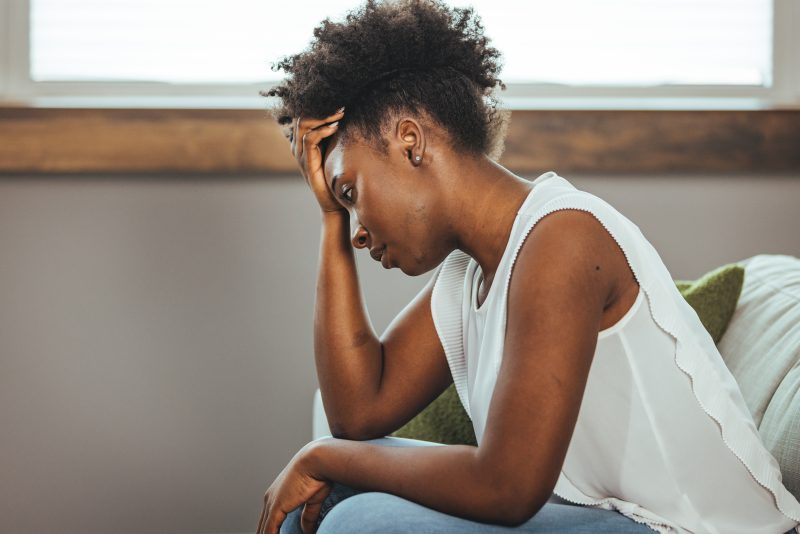Gay, bisexual and other men who have sex with men can sometimes find it difficult to discuss the issues they face in life.
Key things to know
More than half of all men who have sex with men will experience some form of mental ill health in their lives.
The experiences of poor mental health are closely linked to challenges the LGBTQ+ community face, from experiences of discrimination to accepting their own identity and the pressure to conform to societal expectations.
Despite the fact that mental health issues are so common, many men who have sex with men find it difficult to talk about mental health, or feel ashamed and stigmatised for doing so.
If you need support, we are here. Find services near you by searching our service finder.
Service finder
Where to get support
If your mental health is impacting on your daily life and you feel it’s affecting your health, then it is important to seek help as soon as possible.
- At Waverley Care, we provide one-to-one support to help you talk through the challenges you’re facing. We can also put you in touch with other organisations that can help. Contact us here.
- Your GP will be able to offer information and advice, and possibly refer you to specialist services for support like talking therapies and counselling.
- Speaking to someone you trust, whether it’s a partner, colleague, friend or relative, can help you feel less alone in processing your thoughts and feelings.
- Call emergency services if you are feeling suicidal or in distress. You can call 999 and ask for an ambulance or attend your nearest A&E.
Making small changes
Even if you generally feel well in terms of your mental health, there are times when we all feel pressure.
If you don’t feel you need formal support, there are simple things you can do yourself to improve your mental health:
- Speak to a friend or relative. Sharing how you’re feeling with a person you trust can help you make sense of things and deal with pressure.
- Get active. Exercise has proven benefits for mental health. Even getting out for a short walk every day can help you to feel better.
- When you’re feeling under pressure, it can be easy to feel isolated. Try to meet up with friends or sign up to a new hobby to meet people and get out and about.
- If you’re feeling overwhelmed or stressed, take a few minutes, hours or days to unwind. Do something you enjoy like listening to some of your favourite music or going for a walk.
There are lots of great resources and ideas available from organisations such as SAMH. You can also get in touch with our team at Waverley Care, who will help you look at ways of improving your mental health in a way that is right for you.
Common mental health issues
If you are experiencing depression, it’s important to reach out and get help. This can be from friend or partner in the first instance, but if your depression continues and you are struggling, it’s important to seek support whether it’s from your GP, talking therapies or community groups.
There are some common symptoms of depression that can last for a period ranging from weeks to months or even years. You might experience some or all of them:
- Feeling down, upset or sad
- Losing your appetite
- Having difficulty sleeping or wanting to sleep all the time
- Using more alcohol or drugs than you normally would
- Retreating into yourself – becoming less likely to go out and be social
- Feeling less interested in things you used to enjoy
- Losing interest in sex
- Having aches and pains in your muscles and joints
- Feeling like, or thinking about ending your life
If you are thinking of harming yourself or ending your life, you should seek professional help immediately. You can call 999, or contact Breathing Space or the Samaritans.
People who experience anxiety will often have symptoms that affect them emotionally and physically. Many of these symptoms are normal responses to stressful situations but could indicate a mental health issue if they are experienced either over a prolonged period of time (weeks and months) or are particularly intensely.
You may find that:
- you worry all the time, sometimes with no reason, or out of proportion
- you notice physical symptoms like feeling sick, losing your appetite, struggling to sleep (or oversleeping), losing interest in sex, feeling your heart racing in your chest, changing toilet habits, pins and needles
- you may feel your mind is racing with many thoughts – some of which may be unpleasant
- you have panic attacks – intense and sudden feelings of fear or discomfort, often accompanied with shortness of breath, nausea and a feeling of ‘losing control’
- you have a tendency to always see the negative things in any situation
- you avoid everyday situations that’s you may find difficult
Anxiety takes many forms, and services that are there to support people with mental health will be able to work with you to identify the factors that contribute to your anxiety and help you work through them.
Self harm or self destructive behaviour is when someone intentionally damages or injures their body, often at times when feelings of distress and anxiety become very intense. Self-harm is something that is often misunderstood – it is usually associated with cutting but it can take other forms, like repeatedly doing things that you know aren’t good for you.
Self-harm is often a physical response to emotional pain and can be used as a way of coping with difficult situations or feelings of overwhelm and distress.
Self-harm can take many forms, including but not limited to:
- Inflicting physical damage to your body such as cutting, burning, picking, pinching or hitting
- Having unprotected sex, or sex you wouldn’t normally have
- Intentionally putting yourself in risky situations
- Alcohol or substance use
- Starving yourself
- Over-eating
- Hair pulling
- Over-exercising
- Not taking medication
It is important to know that self-harm is not ‘attention seeking’ and that addressing it requires professional help. You should feel confident in accessing that, just like you would for any other health condition that affects your life.
If you are worried about self-harm, either for yourself or someone you know, you can get in touch with us and we can help you to access support.
Eating disorders refer to a number of conditions characterised by eating patterns that affect a person’s health and wellbeing.
The most well-known eating disorders are:
- Anorexia Nervosa, where a person restricts their food intake through dieting, fasting and exercise. People living with anorexia may also use purge activities to compensate for any food intake.
- Bulimia Nervosa , where a person binge eats before making themselves sick (purging) or engaging in other purging activities such as using laxatives, diuretics or enemas.
- Binge Eating Disorder, where a person regularly and uncontrollably consumes large amounts of food in short periods of time. People living with binge eating disorder do not purge or use other purging activities.
- Orthorexia, where a person has an intense fixation with eating ‘pure’ or ‘clean’ food. Although the term ‘orthorexia’ is not commonly used when diagnosing an eating disorder and, eating well is good for overall health, intense fixation on diet and healthy eating can sometimes go too far and put a person’s health at risk. This can often cause a severe distress and anxiety when they are faced with consuming something they don’t consider to be ‘clean’.
Eating disorders are often believed to mainly affect women, but this isn’t true. Eating disorders are more common than you might think among men, and the issue is widely under reported. Living with an eating disorder is a complex mental health condition which can lead to serious health complications, so it’s important to get help and advice if you’re worried about it.
When the word suicide is mentioned, it can often mean a lot of judgement and stigma that can prevent people from accessing help.
Suicidal thoughts are more common than you might think. SAMH (Scotland’s Mental Health Charity) reports that as many as 1 in 20 people are thinking about suicide at any one time, and we know this number is greater in gay and bisexual men and men who have sex with men, including trans men.
Just because you have suicidal thoughts, it doesn’t always mean you want to die. For many, it is about the pain of feeling overwhelmed by their experiences or situation. It can also occur when finding it difficult to see a way through the pain they have or the circumstances they are living with. Often people might feel that it is more about not wanting to live rather than to die.
If you are really distressed and you think you might be at risk of harm or have done something that has caused harm, then this is an emergency, and you should access help immediately. You can do this by dialling 999, accessing the hospital emergency department or speaking with your GP. The Samaritans are available by calling 116 123 and are open 24 hours a day.
Useful contacts
If you are feeling overwhelmed, there are a number of charities that specialise in providing mental health support. You can contact:
- Samaritans – 24/7 listening and emotional support service. You can call free on 116 123.
- Breathing Space – a free, confidential service for people living in Scotland who are experiencing low mood, depression or anxiety. You can call free on 0800 838587 (Mon-Thurs 6pm-2am and from Friday 6pm – Monday 6am)
- Scottish Association for Mental Health – Scotland’s leading mental health charity. There is lots of information and support available through their website.
- LGBT Health and Wellbeing – Offer counselling and one to one support for trans people, and run the LGBT+ Helpline on Tuesdays, Wednesdays & Thursdays from 12-9pm & Sundays from 1-6pm. You can call for free on 0800 464 7000.
Looking for support?
If you are looking for tailored support and advice for gay, bisexual and all men who have sex with men, we're here to help. Get in touch by filling out our contact form.




